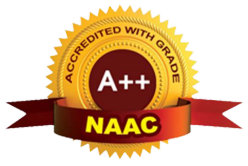Introduction
This is a six months programme aimed at increasing the awareness about environment and health and attempts to impart enough skills needed for the conservation of the environment. These knowledge and skills would safeguard against the health impact of adverse environment. This programme is targeted at a wide audience with a basic 10 + 2 background. The programme would benefit in service people like health professionals, paraprofessionals, NGO workers, teachers of schools, colleges and universities, creative writers, senior citizens, nursing home administrators etc. This programme has been developed through a paternship between IGNOU and ACTS ministries, a Bangalore based NGO. The programme was launched in January 2002. It has an enrolment of about 50 learners.
Objectives
The broad Objectives of the programme are to
• Comprehend the principles of environment, health and their relationship.
• Understand and diagnose the problems generated as a result of environmental degradation.
• Acquire competency to apply the knowledge, understanding and skills related to health and environment for personal and social health and well-being as related to environment.
Teleconferencing
Teleconferencing is a one-way video and two-way audio facility. Teleconferencing will be held every month. During teleconferencing session, you will get an opportunity to interact by phone in facility or fax with the resource persons/experts who participate in teleconferencing session and clear your doubts immediately.
The teleconferencing facility will be available at the Regional Centre and Selected Study Centres. The teleconferencing schedule will be sent to the Programme In-charge and Regional Director who would inform the students. Teleconferencing is done through Gyan Darshan Channel. You must regularly attend these sessions. These will help you to clarify doubts and interact with other learners all over the country.
Radio Counselling
Radio counselling will be held through F.M. and you can ask questions free of cost with phone in facilities right from your home. A toll free telephone number 110012345 has been provided for this purpose.
Telecast
The programme will also be telecasted through D.D. metro channel and schedule will be informed to students in advance.
Audio-video Programme
Audio and video programmes for each course have been prepared to support your learning. These Audio-video programmes in the form of cassettes are available at all Programme Study Centres. These Audio and video cassettes will be provided for viewing and listening. You can also hire the cassettes for viewing and listening.
Attendance
You will be required to complete 75 % attendance in theory counselling to become eligible for appearing in Term-end Examination. Similarly, you will be required to complete 90% attendance in practical contact sessions to become eligible for appearing in practical examination.
Continuous Evaluation of Theory Component
Assignments
Assignment is a means of continuing assessment of theory and practical. Assignments will help you to recapitulate the theory and go back to the text again in case you are unable to answer a particular question. Thus assignments also help to reinforce learning in distance learning system of education.
These assignments consist of a set of questions and activities that you will answer at your own place by referring your blocks. The assignments will cover all types of questions (long answer type, short answer type, objective type, multiple choice questions and case studies). The assignments will carry 30% weightage. You will be required to obtain 50% marks as pass percentage in each assignment separately. Each assignment will carry 100 marks. In the final result assignments will carry 30% weightage.
Term-end Examination
As stated earlier, term-end examination is the major component of the evaluation system and if carries 70% weightage in the Final result.
The University conducts term-end examination twice a year i.e., in June and December. You can take the examination only after completion of the course, failing which you can take the same in December or June of subsequent years years within the total span of the programme.
In case you fail to get a pass score in the Tern-end Examination, you will be eligible to reappear at the next Term-end Examination for that course as and when if is held, within the total span of the programme.



